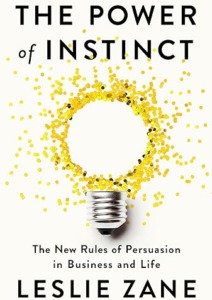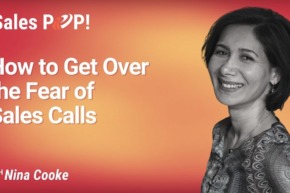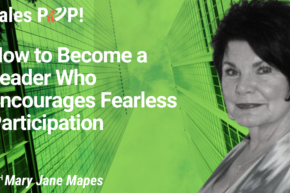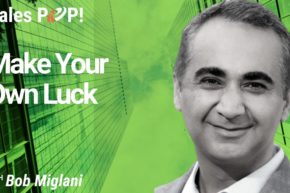In a recent episode of the Expert Insights Interview, John Golden from Sales POP! Online Sales Magazine and Pipeline CRM sat down with Leslie Zane, an award-winning marketer, TEDx speaker, and the founder and CEO of Triggers, a brand consulting firm rooted in behavioral science. Leslie is also the author of “The Power of Instinct: The New Rules of Persuasion in Business and Life.” The conversation delved into the profound impact of the unconscious mind on brand decision-making, the importance of familiarity in branding, and the concept of the “brand connectome.” This blog post will break down the key insights from the interview, providing actionable advice and thorough explanations to help you leverage instinctive triggers for brand growth.
The Role of the Unconscious Mind in Brand Decisions
Understanding the Unconscious Mind
Leslie Zane emphasizes that traditional marketing has long focused on persuading the conscious mind, which is skeptical and resistant to change. However, the unconscious mind, which makes up 95% of our decision-making, is far more malleable and receptive to ideas. By targeting the unconscious mind, marketers can more effectively shape brand perceptions and drive consumer behavior.
Actionable Tips:
- Leverage Behavioral Science: Incorporate principles from behavioral science to understand the unconscious drivers of consumer behavior.
- Create Emotional Connections: Develop marketing strategies that evoke emotions, as the unconscious mind responds strongly to emotional stimuli.
- Use Storytelling: Craft compelling stories that resonate with the unconscious mind, making your brand more memorable.
The Pitfall of Over-Reliance on Metrics
Balancing Data and Human Element
Leslie argues that the increasing reliance on data and metrics has overshadowed the human element crucial in decision-making. While data is essential, it should not replace the understanding of the unconscious mind’s role in consumer choices.
Actionable Tips:
- Integrate Qualitative Research: Combine quantitative data with qualitative insights to get a holistic view of consumer behavior.
- Focus on Consumer Experience: Prioritize creating positive consumer experiences that appeal to the unconscious mind.
- Monitor Implicit Feedback: Pay attention to non-verbal cues and implicit feedback from consumers to understand their true preferences.
Embracing the Power of Instinct in Marketing Strategies
Shifting from Conventional Wisdom
Leslie advocates for a new set of marketing rules that displace traditional ones, enabling organizations to unlock the instinctive mind and drive brand growth more efficiently. One such rule challenges the notion of uniqueness as the ultimate goal for brands.
Actionable Tips:
- Prioritize Familiarity: Instead of solely focusing on being unique, incorporate familiar elements that consumers can easily connect with.
- Add a Distinctive Twist: While leveraging familiarity, add a unique twist to make your brand stand out without alienating consumers.
- Align with Consumer Memory: Ensure your brand messaging aligns with existing neural pathways in consumers’ minds.
The Concept of the “Brand Connectome”
Building a Healthy Brand Connectome
The brand connectome represents the network of associations and memories linked to a brand in consumers’ unconscious minds. A healthy brand connectome is characterized by numerous positive connections, a higher ratio of positive to negative associations, and distinctiveness.
Actionable Tips:
- Identify Negative Associations: Use techniques like memory elicitation to uncover and address negative associations linked to your brand.
- Enhance Positive Connections: Strengthen positive associations by consistently delivering on your brand promise and values.
- Maintain Distinctiveness: Ensure your brand remains distinctive while leveraging familiar elements to create strong connections.
Case Study: McDonald’s Real Food Strategy
Transforming Brand Perceptions
Leslie shares the example of McDonald’s, which successfully transformed its brand connectome through a real food strategy. By leveraging triggers such as the fresh cracked egg, McDonald’s reestablished positive associations around real food and fresh cooking, effectively reshaping its brand connectome and driving growth.
Actionable Tips:
- Leverage Positive Triggers: Identify and use positive triggers that resonate with consumers to reshape brand perceptions.
- Communicate Authenticity: Ensure your marketing messages communicate authenticity and align with consumer values.
- Monitor Brand Health: Continuously monitor and adjust your brand strategy to maintain a healthy brand connectome.
Advice for CMOs: Embracing the Age of Instinct
Adopting New Marketing Principles
Leslie encourages CMOs to adopt the principles outlined in her book and explore the age of instinct in their marketing efforts. By understanding the power of the instinctive mind and leveraging behavioral science, organizations can drive change and choice more effectively.
Actionable Tips:
- Educate Your Team: Invest in training and resources to help your marketing team understand and apply behavioral science principles.
- Experiment and Iterate: Be open to experimenting with new strategies and iterating based on consumer feedback and insights.
- Stay Ahead of Trends: Keep abreast of the latest research and trends in behavioral science to stay ahead of the competition.
The insights shared by Leslie Zane in the Expert Insights Interview highlight the importance of understanding and leveraging the unconscious mind in marketing. By prioritizing familiarity, building a healthy brand connectome, and embracing the power of instinct, brands can create stronger connections with consumers and drive growth more effectively. For those looking to delve deeper into these concepts, Leslie’s book, “The Power of Instinct: The New Rules of Persuasion in Business and Life,” is a valuable resource.
By implementing the actionable tips and strategies discussed in this blog post, marketers can unlock the potential of their brands and navigate the evolving landscape of consumer decision-making with confidence.
Our Host
John is the Amazon bestselling author of Winning the Battle for Sales: Lessons on Closing Every Deal from the World’s Greatest Military Victories and Social Upheaval: How to Win at Social Selling. A globally acknowledged Sales & Marketing thought leader, speaker, and strategist, he has conducted over 1500 video interviews of thought leaders for Sales POP! online sales magazine & YouTube Channel and for audio podcast channels where Sales POP! is rated in the top 2% of most popular shows out of 3,320,580 podcasts globally, ranked by Listen Score. He is CSMO at Pipeliner CRM. In his spare time, John is an avid Martial Artist





Comments